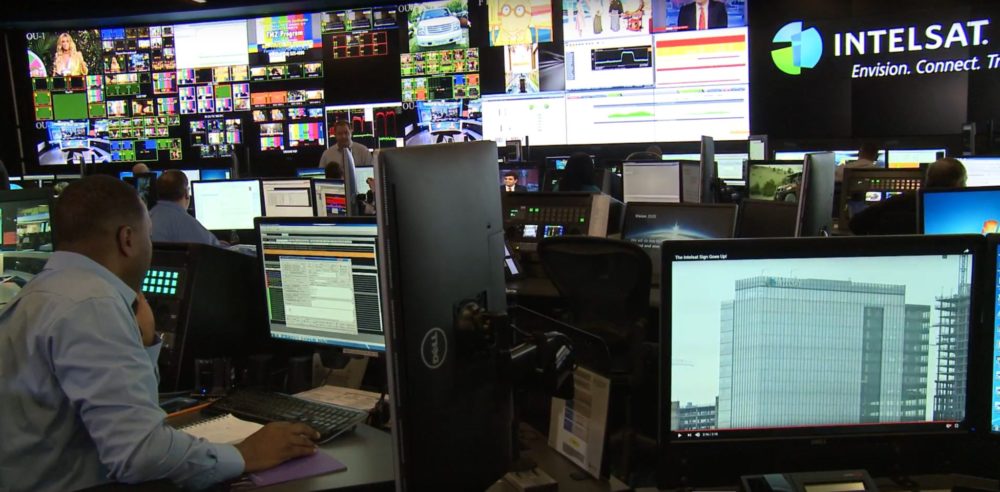
The satellite operations center at the Tysons Corner, Virginia headquarters of Intelsat, which operates a fleet of more than 50 commercial communications satellites. Credit: Intelsat video still
Satellites service and equipment suppliers remain on high alert, watching for signs individual hackers or powerful nation states are trying to breach their network’s cybersecurity. That job is becoming increasingly complex as satellite networks become an integral part of larger terrestrial networks.
WASHINGTON — Satellites service and equipment suppliers remain on high alert, watching for signs individual hackers or powerful nation states are trying to breach their network’s cybersecurity. That job is becoming increasingly complex as satellite networks become an integral part of larger terrestrial networks.
“That is massively increasing the security landscape,” Vinit Duggal, Intelsat director and chief information security officer, said March 8 at the Satellite 2017 conference here. “It’s not so much the threat actors that have changed, but they are getting a larger playground to play in.”
Satellite networks already provide communications services to ships and aircraft. U.S. government aircraft including Air Force One rely on ViaSat for global broadband connections.
Soon the expansive networks that link satellites with terrestrial infrastructure are likely to extend to include cars and household appliances.
“Satellites can play a unique role in the Internet of Things,” said David Hartshorn, secretary general of the Global VSAT Forum. “We are engaging with Internet of Things players to prepare the ground so the defenses are at the highest possible level.”
In some cases, those defenses, may not yet exist, like software to ensure that someone cannot hack into a connected refrigerator and use that access to breach a home network.
The lack of ready-made security features does not mean, however, that household devices should not be connected.
“The idea you can monitor what’s going on in your home is empowering,” said Patrick Rayermann, director for space and national intelligence, surveillance and reconnaissance at Semper Fortis Solutions, a technology consulting company based in Leesburg, Virginia. “We just need to shore up the defenses.”
Donna Bethea-Murphy, Inmarsat Global’s global regulatory senior vice president, said companies are strengthening their defenses by sharing information on threats with competitors, partners, suppliers and government agencies. “This is a key backbone to where a lot of the industry is heading.”